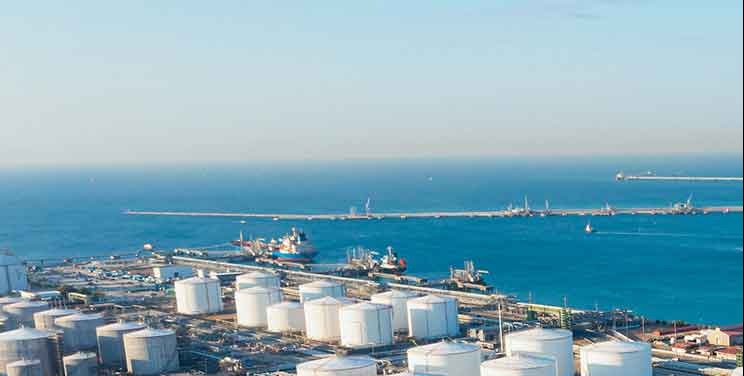BELEM, Brazil (AP) — Officials from countries most vulnerable to global warming offered vivid dispatches of life on the front line of a warming planet Friday, as world leaders gathered on the edge of the Amazon
rainforest for the annual United Nations climate talks.
In preliminary meetings ahead of Monday's official kickoff, officials have sought to build support for initiatives to protect forests and to make carbon markets, which seek to reduce the emissions that drive warming, more effective. But the meetings also took time to hear impassioned testimony about the harms climate change is dealing around the world.
Haitian diplomat Smith Augustin, whose country was pummeled by Hurricane Melissa, appealed to wealthier countries that produce the greatest share of the world’s greenhouse gas emissions to help Haiti prepare for even bigger storms. Developed countries pledged $300 billion to help poor nations adapt to climate shocks at last year’s climate summit in Azerbaijan, but that has yet to be met.
“The hurricanes and the heavy rain devastated my country,” said Augustin. “I want to stress that developing countries, and especially the small island states, are the least responsible for climate change."
Kithure Kindiki, Kenya’s vice president, said rescuers in her country are still searching for scores of people missing after a recent landslide triggered by torrential rain sent muddy water rushing into villages.
“A previously once-in-a-century cycle of extreme droughts alternating with devastating floods continues to wipe out lives, livelihoods and reverse the gains in our development agenda,” he said. “This has now become common.”
And Kalani Kaneko, the foreign minister of the Pacific Island nation of the Marshall Islands, said his country already is living a nightmare.
“All we have to do is look out our front doors to witness the impact of climate change,” he said. “Now the sea rises, the coral dies and the fish stock leaves our shores for cooler waters. “What will happen when the next storm comes to us?”
World leaders who were not in the room on Friday were perhaps as important as those who were.
U.S. President Donald Trump, who calls climate change a hoax and promotes fossil fuels, boycotted the summit, leaving a hole that many other world powers sought to fill. Although China’s leader, Xi Jinping, and Prime Minister Narendra Modi of India also skipped the conference, officials sent in their place used the podium to assure the gathering that multilateralism was not dead just because the U.S. wished it so.
Chinese Vice Premier Ding Xuexiang highlighted his country's massive installations of wind and solar power, presenting it as a leader in the clean energy transition.
“China is a country that honors its commitments,” Xuexiang said, the Chinese state news agency Xinhua reported Friday. “China will accelerate the green transition in all areas of economic and social development.”
India diplomat Dinesh Bahata on Friday touted his country’s expansion of renewables to half of all energy capacity, portraying the Global South as bending toward the future of affordable, clean power while political calculations trapped wealthier nations in an outdated dependence on fossil fuels.
“While developing countries take decisive climate action,” he said, “other countries fall short.”
Other officials had stronger messages for Trump, with Maina Vakafua Talia, the environmental minister of the island nation of Tuvalu, using his speech to address him directly.
“Mr. President, this is a shameful disregard for the rest of the world,” he said of Trump pulling the U.S. out of the Paris Agreement.
The White House countered with a statement that said Trump “will not jeopardize our country’s economic and national security to pursue vague climate goals that are killing other countries.”
Attendees said they made significant progress on two initiatives over the past two days: financial incentives to support endangered forests and unifying global carbon markets.
Brazil President Luiz Inácio Lula da Silva was working to win support for a new fund, dubbed the Tropical Forest Forever Facility, that can be used to pay 74 developing countries to leave their forests standing.
The fund drew $5.5 billion in pledges on the first day of the U.N. climate summit, with Norway and France promising to join Brazil and Indonesia in investing. Germany said Friday it would make a “considerable” commitment. The fund eventually seeks to leverage investments into $125 billion.
Finland President Alexander Stubb praised Lula’s forest conservation fund as an example of financing and innovation driving solutions to the climate crisis.
“What we might be seeing now, according to studies, is a turn of the tide on carbon dioxide emissions, which we’re now starting to reduce,” he told The Associated Press on the sidelines of the summit. “This is because of financing. This is because of innovation … That’s why I think (the fund) is a good idea.”
Also on Friday, the European Union said it was joining Brazil and other countries in a coalition aimed at unifying global carbon markets and incentivizing nations and companies to reduce greenhouse gas emissions.
Brazil has said it wants COP30 to produce an international carbon pricing framework in which no one country sets the standards for emissions trading, which allow companies that pollute less than their assigned emission limits to sell credits to those that exceed theirs.
Brazil and the EU say they’re aiming for a basic set of rules to integrate the world’s different carbon pricing systems.
Expanding global oil demand, rising concerns about energy security and escalating political tensions fueled by Trump's disdain for climate change have pulled attention away from net-zero commitments and slowed the green transition.
In many ways, Lula epitomizes those tensions.
Even as he champions deforestation efforts — and promised on Friday that Brazil was “not afraid to discuss the energy transition” — he has overseen an expansion in Brazil’s oil and gas production.
Just weeks before hosting the U.N. climate summit in Belem, his government granted permission to state-controlled oil company Petrobras to move a drillship to the mouth of the Amazon River, just 160 kilometers (100 miles) from the rainforest to search for more crude oil.
That comes as officials warn that time is running out to keep global warming below the key Paris Agreement benchmark of 1.5 degrees Celsius (2.7 Fahrenheit). Last year was the hottest year on record, with the average temperatures exceeding that limit for the first time.
Scientists say that every fraction of a degree of atmospheric heating unleashes more intense storms, longer droughts and deadlier heat waves.
Racquel Moses, CEO of the Caribbean Climate-Smart Accelerator, a coalition investing in climate change resilience, said that Hurricane Melissa made painfully clear that next week’s talks at the Conference of Parties, known as COP30, “are not an academic exercise for us.”
“At this COP, it will be much, much harder to ignore the Caribbean, to talk around the issues that are absolutely real, because we just had this experience,” said Moses, who has family in Jamaica. “The very way that we live is dependent on these negotiations going according to plan.”
___
Associated Press reporter Sam McNeil contributed from Brussels.
___
The Associated Press’ climate and environmental coverage receives financial support from multiple private foundations. AP is solely responsible for all content. Find AP’s standards for working with philanthropies, a list of supporters and funded coverage areas at AP.org










